A life full of adventure and the darker side of human nature
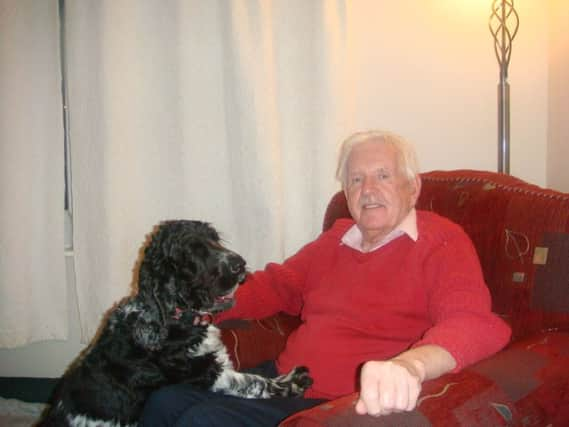

A resident of Beadnell since he and his wife Catherine retired to north Northumberland in 2010, Tony recently published his first novel – a political thriller – at the age of 73.
But his next book has the potential to be even more interesting, as it’s a true story; he is midway through writing his memoirs which, among other aspects, will feature his time in the police in West Yorkshire in the ’60s and ’70s, as well as 35 years spent living in Africa.
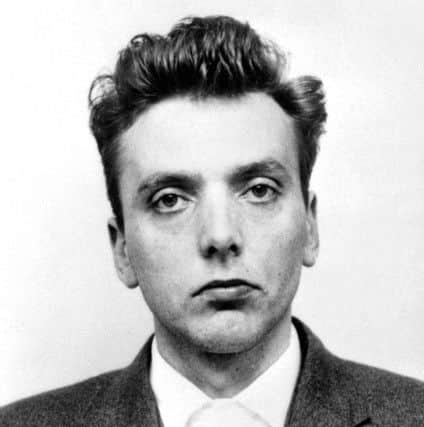

Advertisement
Hide AdAdvertisement
Hide AdAnd having outlined his life story in an interview with the Gazette, it’s clear the book will include a wealth of fascinating incidents and experiences which are alien to many of us.
“The original motivation was not to publish, but just to have a record of what I have done,” Tony said.
“Then it got quite interesting going into all the murders and things like that. There will be a published edition, with the speculation and anything libellous taken out, and a family version. I will change the names in the published version too.”
Tony’s early adulthood was spent serving in what was called West Riding Constabulary before it became West Yorkshire Police.
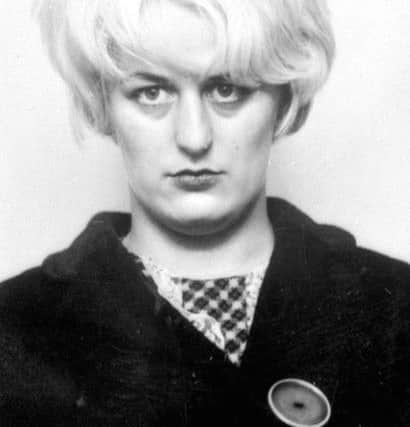

Advertisement
Hide AdAdvertisement
Hide AdStarting as a bobby on the beat, he later joined CID (Criminal Investigation Department) and was involved in the investigations into some infamous and grisly murders.
Tony was on the periphery of perhaps the most infamous of them all – the Moors murders, a ‘dark and disturbing tale’ which saw Ian Brady and Myra Hindley kidnap and murder young children before burying their bodies on Saddleworth Moor.
Saddleworth Moor is mostly now in what is the Greater Manchester area (then Lancashire), but it also straddles over into West Yorkshire and at one stage Tony and another detective were involved in the inquiry because it was not known if one of the murders had been committed in Lancashire or Yorkshire and they spent some days up on the moors.
Something Tony says he will never forget, unfortunately, is listening to a sound recording made by Brady and Hindley of 10-year-old victim Lesley Ann Downey before her death in an old stone police station somewhere up on the moor.
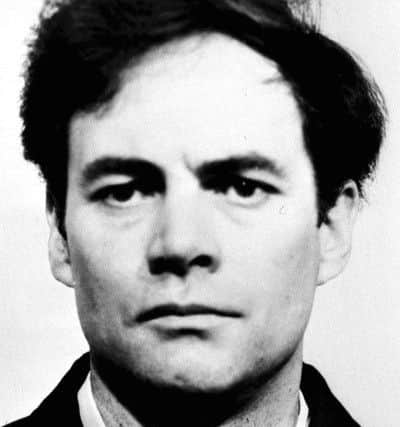

Advertisement
Hide AdAdvertisement
Hide AdNo less gruesome, but an investigation in which Tony played more than a peripheral role, was the series of armed robberies and murders by Donald Neilson, who was dubbed the Black Panther in the media.
It all started in Harrogate, where Tony worked in CID, in February 1974, with the murder of Donald Skepper and was followed later that year by the murders of Derek Astin, in a village near Accrington, and Sidney Grayland in the West Midlands.
In January 1975, 17-year-old Lesley Whittle, the heiress of coach transport business owner George Whittle, was kidnapped from the family home in Shropshire with £50,000 demanded as a ransom.
The next day, a security guard called Gerald Smith was shot six times when he confronted a trespasser in a railway yard in Dudley and forensics quickly established that the bullets had been fired from the same gun that had been used to kill Grayland and Astin.
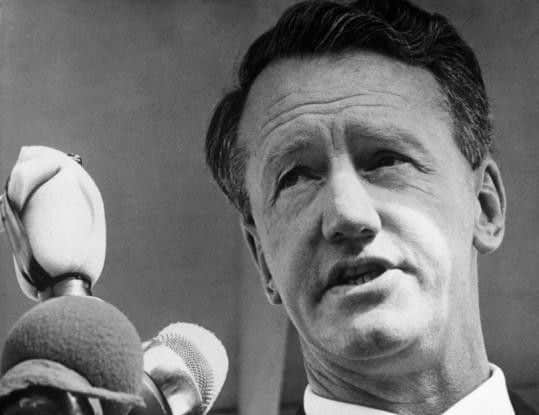

Advertisement
Hide AdAdvertisement
Hide AdSmith survived the shooting and Tony spoke to him in the hospital, describing him as ‘quite coherent’, but he eventually died. As he died more than a year and a day after the incident, they were unable to charge Neilson with attempted murder.
Despite allegations of police bungling, the attempt to pay the ransom for Lesley Whittle was ‘a comedy of errors’ according to Tony, with Lesley’s brother Ronald missing the right spot for the drop-off and a courting couple happening to stop their car near to the correct spot and flashing their car headlights in response to the flashing of a torch from Neilson (a pre-arranged signal) – the driver said he didn’t know why he had flashed back.
Lesley’s body was found in early March at the bottom of a drainage shaft in Bathpool Park. Neilson was eventually captured and arrested in December 1975, after Tony had already left the country for sunnier climes.
The investigation of these horrific murders did have one moment of personal gain for Tony – bringing him back into contact with his wife-to-be Catherine, who was ‘clocked’ on her way to work at Leeds/Bradford Airport by the police cars on the lookout for the culprit after the first murder in Harrogate.
Advertisement
Hide AdAdvertisement
Hide AdTony volunteered to go with the uniformed officer who had her on his list of people to be interviewed.
He had first met Cathy, as he calls her, when his friend Chris Fawcett went away skiing in Europe and asked Tony to look after his girlfriend while he was gone. Incidentally, Chris’s wife Roz eventually became one of the original Calendar Girls.


Tony makes reference to a quote by Joseph Wambaugh, author and ex-LAPD (Los Angeles Police Department) policeman, with which he wholeheartedly agrees: “There is nothing in the world more satisfying than doing good police work.”
And he added that he ‘thoroughly enjoyed his time in the police force’, however, he explained that the doom and gloom of the mid 1970s – murders, kidnapping, paedophiles, industrial unrest and the IRA bombing campaign – had got to him, so a move abroad seemed the logical next step.
Advertisement
Hide AdAdvertisement
Hide AdIn 1974, he and Catherine, along with some friends, decided to start a new life in Australia.
The couple did a lot of their courting at a pub called the Three Horse Shoes, where they became friends with Pete and Nell Horsfall, whose daughter Julie was married to Don Spencer, the Australian entertainer and children’s TV presenter.
Julie and Don had two young children at the time, one of whom, Danielle, grew up to become a singer, later marrying the actor Russell Crowe.
Tony and Catherine had recently got engaged, with a wedding planned for early ’75, while he was tied up with the Black Panther murders at work, so it was agreed that their friends would go on ahead and the Willises would join them later that year.
Advertisement
Hide AdAdvertisement
Hide AdHowever, in late 1974, Australia went into a deep recession, leading the Government to stop all immigration to the country.
With Australia out, New Zealand too far away but a desire for sun, sand and sea, South Africa presented itself as the best option.
The newly-weds headed for Africa on the SS Oranje from Southampton, unfortunately on her penultimate journey, which meant saltwater showers and only two electric points on the entire ship.
They arrived in Cape Town and had their first experience of apartheid when they entered a ‘coloureds-only’ cinema while waiting for a train to Johannesburg.
Advertisement
Hide AdAdvertisement
Hide AdAfter a spell in South Africa, the couple went north to Bulawayo in Rhodesia where Tony got a job with Rhodesian Railways and Catherine started working for Radio Jacaranda.
At this time, the country was in the midst of the Rhodesian Bush War, the civil war, also known as the Zimbabwe War of Liberation, between the Rhodesian government, under Ian Smith; the Zimbabwe African National Liberation Army, the military wing of Robert Mugabe’s Zimbabwe African National Union; and the Zimbabwe People’s Revolutionary Army of Joshua Nkomo’s Zimbabwe African People’s Union.
It was something that Tony experienced first-hand when he got a new job in the construction industry and moved to an area close to the Mozambique border which was populated by 10,000 freedom fighters, or terrorists depending on your viewpoint.
As part of his kit while building the road, he was issued with an FN rifle, an Uzi sub-machine gun and a Browning high-power pistol and travelled around in mine-proof vehicles.
Advertisement
Hide AdAdvertisement
Hide AdDespite the precautions, more than 20 personnel were lost during the contract to landmines and ambushes, including 12 in one incident. Tony himself was even involved in one firefight.
Rhodesia, or Zimbabwe as it is today, is a beautiful country, according to Tony, but the security fears meant that they returned to South Africa in 1978.
Later, Tony was head-hunted by a Swiss construction company to work in Botswana where he became friends with George Adamson, of Born Free fame, and the Khama family – Ian Khama is the country’s current President.
The couple returned to South Africa when Tony was head-hunted back to Concor, the construction company where he eventually became a director, while his wife worked for a number of different airlines, some African as well as British Airways. After 20 years, Tony left to set up his own management consultancy, but he was delayed for two years by American insurers Aon.
Advertisement
Hide AdAdvertisement
Hide AdHe was meeting the company’s representative in London when 9/11 happened and the woman’s son worked in the World Trade Centre. Fortunately, he managed to get out after the planes hit but before the towers collapsed.
His company, Aviation Global Solutions, was primarily aviation-related, but also raised venture capital for other projects.
Tony spoke about a number of ‘notable failures’ that he had, including an attempt to buy British Airways, ostensibly on behalf of Virgin, but backed by Saudi Arabian money, and a bid to purchase 49 per cent of South African Airways. He was also involved in a project called Mobile Genius, which was a payments system using mobile phones, but it struggled to attract the interest of the banks at the time – more than 10 years ago, how times change.
As seems to be a recurring theme though, safety became a concern for the couple again after Tony was hijacked at gunpoint, his wife suffered two smash and grabs, three vehicles were stolen, they were burgled once, another intruder was disturbed breaking in and a friend was shot and almost died.
Advertisement
Hide AdAdvertisement
Hide AdAnd so it was that they moved back to the UK and settled in Beadnell, allowing Tony to write his first novel and work on his memoirs. As mentioned earlier, it’s sure to be quite a read.
Middle East troubles at heart of debut novel
It’s never too late to start, as they say, and Tony Willis has proved that is the case by recently completing his first novel at the age of 73.
Dark Flame, by Antony Willis (as he is billed on the book), is a political thriller underpinned by the threat of a nuclear attack on the UK, intertwined with the internecine violence, proxy power struggles and the emergence of the so-called Islamic State in the Middle East.
Tony has self-published the book and it is available from Amazon in paperback or as an e-book for Kindle.
Advertisement
Hide AdAdvertisement
Hide AdSome of the action takes place off the north Yorkshire coast and involves ‘the now sadly departed Search and Rescue helicopter from RAF Boulmer’.
The Beadnell resident is also halfway through his memoirs which include his close involvement with a number of high-profile murders, for example, the kidnapping and murders by Donald Neilson, also known as the Black Panther; his time during the internal conflict in Zimbabwe and the attainment of majority rule in South Africa.
If that wasn’t enough, Tony has also started work on his second novel, a crime thriller called Dead Reckoning.
Explaining his motivation for writing the novel, he said: “I always felt like writing a book and I started one years ago around the miners’ strike, but when I was working 15 hours a day, I just didn’t get the time.
Advertisement
Hide AdAdvertisement
Hide Ad“When I came back here and semi-retired, I thought, let’s get it out the system. What I found was 80 per cent of it was doing research because I wanted to get things right.”
It took Tony about three years to write Dark Flame, but he wasn’t disciplined in his writing as he was still involved in business in South Africa and other projects.
Now, he is more structured in setting aside time to get writing done.
“The memoirs are easier because you are just recalling memories, not doing research,” he added.